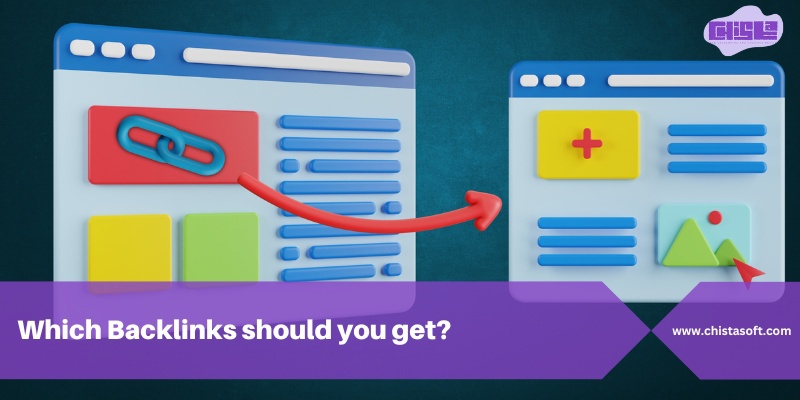For many website owners and companies, appearing on the first page of Google search results is a desirable objective. While there’s no guaranteed formula, there are several strategies you can employ to increase your chances of ranking higher in search engine results.
What should be the first step of a structured SEO plan?
Structured SEO refers to a systematic and organized approach to search engine optimization (SEO) that focuses on optimizing various aspects of a website to improve its visibility, relevance, and ranking in search engine results pages (SERPs). It involves implementing a comprehensive strategy encompassing technical, content, and user experience optimization, all to enhance a website’s performance in organic search.
Learn more: What Is SEO?
Choose a Target Keyword

Ways to Get on the First Page of Google
The first step of a structured SEO (Search Engine Optimization) plan is typically conducting thorough keyword research. Keyword research involves identifying your target audience’s specific words and phrases when searching for information, products, or services related to your website’s content or offerings. This step is crucial because it forms the foundation for your entire SEO strategy and helps you understand the language and intent of your potential visitors.
Selecting the right target keyword is the cornerstone of any structured SEO strategy. It’s akin to choosing the starting point on a map before embarking on a journey. This strategic decision lays the foundation for the entire optimization process, directing your efforts toward capturing the right audience’s attention and boosting your website’s visibility in search engine results.
Analyze search intent

Analyzing search intent is a critical aspect of keyword research and SEO strategy. It involves understanding the underlying motivation or purpose behind a user’s search query. By matching your content with the user’s intent, you can provide more relevant and valuable information, leading to higher user satisfaction and better search engine rankings.
Creating good content

Creating high-quality and engaging content is fundamental to a successful SEO strategy. Well-crafted content satisfies user intent, attracts backlinks, encourages social sharing, and signals to search engines that your website is authoritative and valuable.
Google Optimize to improve your rank

Google Optimize is a tool primarily used for A/B testing and website optimization. While it can indirectly impact your website’s SEO by improving user experience and engagement, it doesn’t directly influence your search engine rankings. However, a better user experience can result in lower bounce rates, a higher ranking on Google’s first page, more visitors staying on your site for longer periods of time, and perhaps even more backlinks, all of which can help your SEO efforts.
Which Backlinks should you get?

When acquiring backlinks for your website, quality and relevance are key factors to consider. Backlinks from authoritative, relevant, and trustworthy sources can positively impact your website’s SEO and overall online presence.
Backlinks should come from websites relevant to your content, industry, or niche. A link from a relevant source is more likely to provide value to your audience and search engines.
Check Your Rankings always.

Checking your website’s rankings in search engines is an important practice to monitor the effectiveness of your SEO efforts. However, it’s okay to check rankings obsessively. Instead, consider the following points for a balanced approach to tracking your rankings:
Regular Check-Ins: It’s a good idea to periodically check your rankings to assess how your website is performing in search results. Weekly or monthly check-ins are often sufficient, depending on your goals and the level of competition in your industry.
Focus on Target Keywords: Identify a set of target keywords that are relevant to your business and industry. It would help if you focused on tracking these keywords in search engine rankings.
Use Rank Tracking Tools: Utilize SEO tools or rank-tracking software to automate the process. Tools like Moz, SEMrush, Ahrefs, and Google Search Console can help you monitor your keyword rankings over time.
Which of the following factors should you consider when optimizing your website for search engines?
When optimizing your website for search engines, it’s important to consider a wide range of factors to ensure a comprehensive and effective SEO strategy. The following points should be remembered:
• Keyword Research and Targeting
• Content Quality and Relevance
• On-Page Optimization
• User Experience (UX) and Mobile-Friendliness
• Technical SEO
• Backlink Quality and Authority
• Social Signals and Engagement
• Local SEO
• Competitor Analysis
Remember that SEO is a continuous process that necessitates ongoing monitoring, adjustment, and development. By considering these factors and implementing a well-rounded SEO strategy, you can enhance your website’s visibility, attract more organic traffic, and achieve your online goals and Placement on the first page of Google.



Good and quality content has the potential to be shared by site users. The quality of the content makes it viral and shared very quickly and is one of the most essential and valuable ranking factors in Google.
We appreciate you taking the time to read and comment on the content on our website.
Everything in an SEO plan revolves around keywords. It directs all following optimization activities, such as off-page SEO, on-page SEO, and content production. Therefore, it stands to reason that conducting keyword research should come first when developing a structured SEO strategy.
Thank you for your time, dear audience, in leaving comments on our work.
It’s no secret that websites that show up on the first page of search engine results pages (SERPS) get more website traffic than those that do not. In fact, 75% of users never scroll past the first page of search results. In simple terms, this means that most businesses should not and cannot afford to skip SEO.
Thank you for taking the time to comment on our site.
Google’s computer algorithms dynamically determine which web page on the Internet is the most relevant for a specific key word or key phrase and displays it first. It then displays the second most relevant page, and so on. The resulting list of web pages is known as a Search Engine Results Page (SERP).
We value your time and effort in leaving comments on our website.
Undertaking a thorough website audit is the first stage of a systematic search engine optimization campaign. This is so that any subsequent techniques may be implemented with a clear understanding of the existing condition of the website.
Thank you for reading our work and for your insightful comments.
Your website loading time has a direct impact on user experience and SEO ranking. Users are more likely to leave a site that takes time to load.
There are plenty of steps to take to improve the loading speed of a website.
Start by using tools like Google PageSpeed Insights to analyze your site speed and apply recommendations to reduce load time. Compressing images, reducing HTTP requests, and using caching are a few methods to speed up your site.
Yes, both your website’s SEO ranking and user experience are directly impacted by how quickly your page loads.
Keyword research is a big issue to get to the first page of Google because keyword research should be done in a way that many people are searching for it, but few sites have written about it.
You made a really good point about conducting keyword research to get to the top of Google, my dear friend.
We appreciate you taking the time to write us your thoughts.